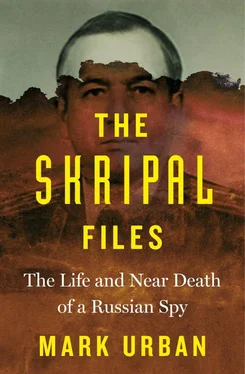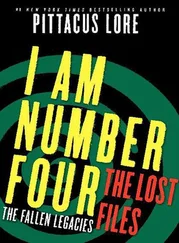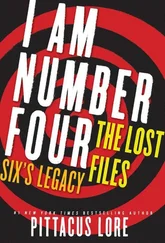Although the GRU held up relatively well during the chaos and uncertainty that marked the early months of the Yeltsin era, it was not immune. At the senior level there were sackings and resignations. Going to work there might once have seemed like ascending to a kind of nobility but as freewheeling capitalism and galloping inflation took hold every officer felt like a member of an ancien régime fallen on hard times.
Skripal wrestled with his feelings. For him, the military oath sworn in Kaliningrad all those years ago was paramount. But at the end of 1991 the country he had pledged to defend ‘sparing neither blood nor life itself’, the Soviet Union, no longer existed. There had been some discussion at the office about swearing a new oath, to Yeltsin’s Russia, but Skripal, like many other employees of the GRU, had sidestepped it and his superiors were too disgusted by what was happening to the country to insist. And really if it came to betrayal, there had already been so much of that from Gorbachev and Yeltsin, who had destroyed the state that he had pledged to serve.
So one morning in the summer of 1992, Colonel Skripal made his way to GRU headquarters and requested a meeting with the deputy director, one of the generals who ran the organization.
The colonel had endured enough. ‘I didn’t accept the Russian democrats’, he explained, ‘I didn’t want to serve the new government.’ Skripal was intent on bailing out of the GRU.
That summer of 1992, as Skripal reached his decision to resign, Richard Bagnall was completing his training as an officer of the Secret Intelligence Service. Those entering MI6 did not have to endure the four years that GRU officers spent at their academy, preparing for espionage work. Rather, having passed the selection boards, British spies went through six months of training before being assigned their first job in a foreign station.
He joined as a junior member of a fabled service. But at that moment, MI6 was engulfed in the uncertainties of the post-Cold War world – an agency that couldn’t make up its mind whether it wanted to go after all manner of new targets, or preferred to take advantage of Russia’s prostrate state to avenge itself for past humiliations.
As for Bagnall, his path to this point was indirect. He was an army officer when he joined MI6 a couple of years previously and it was agreed that he should attend the long Russian course at the Defence Languages School at Beaconsfield. This prepared students to ‘interpreter standard’. During the Cold War the Beaconsfield course had become de rigueur for certain members of the Intelligence Corps, people involved in electronic eavesdropping, and many of those were posted to the British Military Mission or Brixmis in East Germany where a form of legalized military spying provided young servicemen and women with one of the most exciting postings they could hope for. But with the end of the Cold War, Brixmis was disbanded and indeed deep cuts were falling on the armed forces, yielding a ‘peace dividend’ for the taxpayer.
Having grown up living a peripatetic existence, with a father sent to postings all over the world, Bagnall had found in his regiment a home, and a focus for fierce loyalty. Packed off at an early age to boarding school he might in a different century have gravitated towards the Church.
However, finding an atmosphere of uncomplicated friendship, fun, and camaraderie in uniform, he dedicated himself to becoming as good a soldier as he could be. Like the Russian who he would meet years later in a Madrid park, the young officer’s search for excellence and fulfilment led him into reconnaissance units and then to special forces. Bagnall passed selection for the SAS Regiment, but was rejected during the follow-on training known as Continuation. Given the enormous investment of physical and emotional energy in going for it, it’s unsurprising his colleagues registered his deep disappointment.
Skripal and the young British officer had something else in common too. While the ranks of the world’s intelligence agencies contain all manner of dissemblers, charlatans, and bed-hoppers, both of these men married young and for the long haul. They were dutiful husbands and fathers.
While the army still promised the young captain a good future, and the likelihood of command, the end of the Cold War pushed him, eventually, to seek something different since his battalion ceased to exist. Evicted by history from his regimental home, it was to the Secret Intelligence Service that Bagnall now dedicated his efforts.
It should be unsurprising that things went the way they did in el Retiro in July 1996. For in a way Skripal would come face to face with a younger version of himself. This ardent Englishman was devoted to what he was doing, had the physical and intellectual self-confidence that came from arduous training, and, crucially, still had faith in the system he served.
For ‘the Friends’, as the service sometimes likes to style itself, their new officer was a good catch. Fiercely bright, he had passed into the Intelligence Branch, the organization’s fast stream. A senior MI6 officer who oversaw some of Bagnall’s early work describes him as ‘a charming and highly intelligent officer’.
Having completed Beaconsfield, he went through the more formal part of an MI6 officer’s training. There’s a standard six-month course involving the inevitable classroom sessions, inspirational talks from service legends, and preparation in spycraft.
Much of the recruit training takes place at ‘the Fort’, alias Fort Monkton on the Solent. There the officers get a taste for the more physical side of the business, from scaling fences to lock-picking, unarmed combat, and pistol-shooting. Elsewhere, exercises were carried out against experienced surveillance-section operatives, often on busy streets in London. These were designed to school recruits in counter-surveillance – a skill critical in many places to their survival and that of their agents.
Inevitably, given his long Russian language course, Bagnall must have devoted a great deal of thought during the sessions on cultivating and running agents to how hard this might actually be. For those giving the lectures understood one of the agencies’ deepest and darkest secrets during decades of the Cold War: that for all the talk about recruiting and running sources in the Soviet Union, it was a devilishly hard thing to do.
The surveillance state constructed by the KGB was so pervasive that unless somebody had already made the decision to spy for you, it was nigh on impossible to persuade them. A senior CIA officer who rose to near the top of its Directorate of Operations or Clandestine Service put the issue succinctly:
Over time I came to believe that the Clandestine Service wasted a lot of energy trying to recruit Soviets during the Cold War. Historically those who really wanted to cooperate with the United States have walked in of their own volition and offered their services, usually for money. I know of no significant Soviet recruitment that was spotted, developed, and recruited from scratch by a CIA case officer.
This extraordinary statement, implying that decades of work by hundreds of CIA officers never brought in a Soviet spy who wasn’t already bent on treachery, needs some qualification. The CIA ended up running many agents in the USSR during the Cold War who were not ‘walk ins’, i.e. who’d simply offered their services. In these cases cultivation consisted of identifying the target’s pre-existing doubts about what they were doing and little by little carrying them across the line to treason. Even so, what this highlights is the degree to which the self-image of Western agencies, as steely freedom-loving people turning their ideological foes to treachery, was out of kilter with their actual performance. One estimate in the 1980s suggested that only about 5 per cent of CIA case officers, operating in a wide variety of countries around the world, had ever actually recruited an agent – someone productive of valuable intelligence.
Читать дальше












